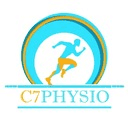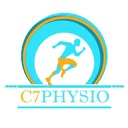Understanding Human Metapneumovirus (HMPV): Symptoms, Treatment, and Prevention
Human Metapneumovirus (HMPV) causes respiratory symptoms ranging from mild cold-like symptoms to severe respiratory infections. Learn about its recent spread, symptoms, breathing exercises for management, and essential prevention strategies.
Expert healthcare guidance for effective treatment and recovery
Human Metapneumovirus (HMPV) is emerging as a significant respiratory concern, with recent cases reported in northern China and India. Understanding this virus, its symptoms, and management strategies is crucial for public health awareness.
What is Human Metapneumovirus?
HMPV is a respiratory virus causing symptoms ranging from mild cold-like symptoms to severe respiratory infections. Recent surveillance shows a 6.2% positivity rate in respiratory tests in northern China, while India has confirmed its first seven cases, including infants.
Understanding HMPV Symptoms
Mild Symptoms:
- Persistent cough and throat irritation
- Nasal congestion and rhinorrhea
- Low to moderate fever
- General fatigue and malaise
Severe Symptoms (High-Risk Groups):
- Significant respiratory distress and wheezing
- Severe breathing difficulties
- Voice hoarseness and chest congestion
- Development of pneumonia
- Worsening of existing asthma conditions
Diagnostic Approaches
Healthcare providers use several methods to confirm HMPV infection:
- RT-PCR Testing: Molecular detection from respiratory samples
- Antigen Detection: Quick identification of viral proteins
- Viral Culture: Comprehensive virus analysis
Effective Management Through Breathing Exercises
While HMPV lacks specific antiviral treatment, these breathing exercises can significantly aid recovery:
1. Diaphragmatic Breathing Technique
- Find a comfortable seated or lying position
- Position one hand on your chest, another on your abdomen
- Practice deep nasal inhalation, focusing on abdominal expansion
- Exhale slowly through the mouth
- Maintain this practice for 5-10 minutes daily
2. Pursed-Lip Breathing Method
- Inhale slowly through your nose
- Exhale gradually through pursed lips
- Maintain a 1:2 ratio of inhalation to exhalation
- This technique helps maintain open airways
3. Controlled Coughing Exercise
- Take and hold a deep breath briefly
- Perform controlled, productive coughs
- This helps clear accumulated mucus
4. Incentive Spirometry Practice
- Use a spirometer device as directed
- Practice slow, measured deep breaths
- This helps prevent lung complications
Essential Prevention Strategies
- Regular and thorough hand hygiene
- Avoid facial contact with unwashed hands
- Regular disinfection of high-touch surfaces
- Maintain appropriate distance from infected individuals
- Consider mask usage in high-risk situations
When to Seek Medical Care
Consult healthcare providers immediately if experiencing:
- Severe breathing difficulties
- Persistent high fever
- Worsening symptoms despite home care
- Symptoms in high-risk individuals
Remember, while HMPV is common, understanding its management and prevention is key to maintaining respiratory health. Always consult healthcare professionals for personalized medical advice.
💡 Key Takeaways
- •Respiratory physiotherapy aids recovery
- •Prevention strategies reduce infection risk
- •Early intervention improves outcomes
- •Comprehensive care addresses all aspects
🛡️ Prevention Tips
- 1.Practice proper hand hygiene
- 2.Maintain good respiratory hygiene
- 3.Strengthen immune system through exercise
- 4.Ensure adequate ventilation in living spaces
- 5.Avoid close contact with infected individuals
- 6.Get adequate rest and nutrition
- 7.Practice stress management techniques
- 8.Stay hydrated to thin respiratory secretions
- 9.Consider respiratory physiotherapy for at-risk individuals
- 10.Follow public health guidelines during outbreaks
When to See a Doctor
Seek medical attention for persistent breathing difficulties, chest pain, high fever, or if symptoms worsen after initial improvement.
Ready to Get Relief from Your Pain?
Don't let pain control your life. Our expert physiotherapists in Jaipur are here to help you recover and get back to doing what you love.
Dr. Raj Maheshwari
BPT, MIAP, MCMT(USA), CMTPT(USA)
With 6+ years of experience in physiotherapy, successfully treated 2500+ patients in Jaipur.
Medical Disclaimer: This information is for educational purposes only and should not replace professional medical advice. Consult with a qualified physiotherapist for personalized treatment.
Continue Reading
More articles coming soon...

